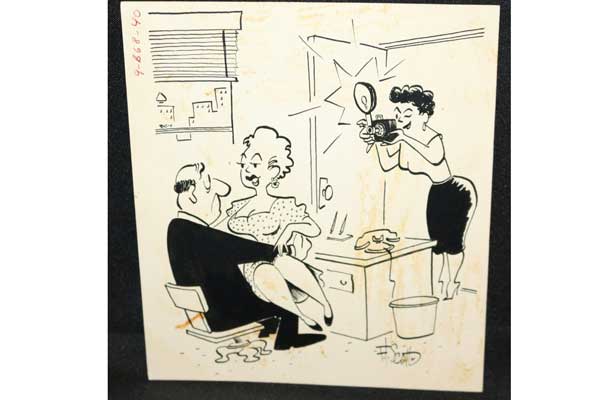
画像引用:Boss Caught with Secretary on Lap Gag – Signed by F.T. Scott
https://anthonys.b-cdn.net/images/Category_2/subcat_2226/IMG_4039.JPG
12月6日の英文添削「日本語での解釈例」への挑戦として以下のものを書いてみました。講師のどなたかに添削して頂き結果を後日投稿します。これを機会によい英文が書けるようになりたいと思います。
Max Schling, a New York florist, placed an advertisement in the New York Times. The whole part of it was written in shorthand.
Many businessmen got curious about it and, unable to read it themselves, asked their secretaries to translate it for them.
It turned out that the advertisement was for the secretaries, asking them to think of Schling florist when the boss wanted flowers for his wife.
Schling knew that a considerable portion of the flow of the flowers from his shop was from men to their wives. He also knew that it was their secretaries who actually came to his shop to do the shopping for them. When a man did something which invited anger from his wife, he tries to fix her mood by sending her flowers. Schling had rightly suspected that those men were not feeling so sorry as to visit a flower shop themselves. They ask their secretaries to do so for them. Knowing all this, Schling came up with a brilliant idea of placing an ad targeted for secretaries in the way which, more than likely, would eventually bring it to secretaries.

